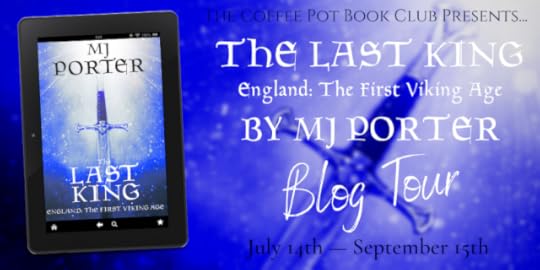Mary Anne Yarde's Blog: The Coffee Pot Book Club , page 80
August 2, 2020
Join me in conversation with author, M.A. Hunter #CrimeFiction #Thriller #NewRelease @Writer_MAHunter @HarperCollinsUK @0neMoreChapter_

Join me in conversation with M.A. Hunter
Please give a warm Coffee Pot welcome to crime fiction author, M.A. Hunter.
Mary Anne: Congratulations on your fabulous new release, Ransomed (The Missing Children Case Files, Book 1). Your book sounds wonderfully intriguing. What inspired you to start writing crime fiction?
M.A. Hunter: I’ve been a fan of crime fiction for as long as I can remember, and I love stories that grab me from the first page and then weave a twisting narrative that has me second-guessing my suspicions of the wrongdoers, so it seemed like a natural avenue to explore. I’m fascinated by the opposing forces of dark and light, and wanted to explore the psyches of those that chose a particular direction rather than the other. As a parent, a child going missing is what haunts my nightmares so felt like an intriguing subject to focus on.
Mary Anne: Your book is set in Weymouth, in the South West of England, and is a place I know quite well. Why did you decide to set your story here?
M.A. Hunter: I live in Hampshire and Weymouth has become like a second home because of the number of times we’ve visited on day trips, or stayed there for holidays. It is such a friendly town, but having HMP Portland on the horizon hints that all is not as picture perfect as the beach-focused postcards make it seem.
I wanted my main character, Emma, to have this affinity with her hometown, a place that is in stark contrast to where her future may lie in terms of building her writing career, and I think Weymouth provides that dynamic.
Mary Anne: What were the challenges you faced when writing this book?
M.A. Hunter: Finding the time to write was probably the biggest challenge, as I have a fulltime job and young family as well. It’s meant a lot of very early starts and weekend working to get it finished, but I’m so proud of the final work, and my hope is that readers are going to love Emma much as I do.
I also wanted to make sure I did justice to the Weymouth setting, and show those who’ve never been just how wonderful a town it is.

Mary Anne: What do you think makes a good crime thriller?
M.A. Hunter: For me, the perfect crime thriller needs to have a compelling mystery to be solved, but the character following the clues needs to be the right combination of empathy, and deductive reasoning to inspire the reader to follow their journey through the book. A lot of time went into developing Emma, who is this writer suddenly thrust into the spotlight because of the exposé she wrote on historic child abuse at a former care facility for children. She doesn’t want to be recognised in the street, and part of her regrets writing the book for that reason, but she knows without it those abuses would have gone unpunished.
I like to see plenty of twists and turns in a good crime thriller too, and I think over this series (there are 6 books set to be released between Sep 2020 and July 2021) the reader will experience Emma’s highs and lows as she fights for the truth about her own abducted sister.
Mary Anne: What advice would you give to aspiring crime writers?
M.A. Hunter: Read, read, and read some more. Whether that’s to soak up the types of stories that are commercially viable, or just to help develop your own writing voice, reading a variety of different authors in the genre will certainly prove beneficial. Once you’re ready to start, you need to accept that writing a book is a huge investment of your time. Words don’t just magically appear, they need to be crafted and written. I’ve become a very fast writer because of the deadlines set for the production of this series, but it can take a long to physically produce somewhere between 80k – 100k words of material. But it is so worth it when you get to type ‘The End’, and then hear wonderful praise from those who read the book. Some books suggest to write every day, others will tell you to set yourself daily word counts, but in truth there is no right or wrong way to write; ultimately, if you can be disciplined to take however long is required to write the first draft, then you’ll achieve something that so many strive for, but not everyone achieves.
Mary Anne: Thank you so much for stopping by and chatting with me today.
If you would like to find out more about M.A. Hunter and his fabulous new release then you know what to do — SCROLL DOWN!
Ransomed
(The Missing Children Case Files, Book 1)
By M.A. Hunter
Some secrets are too big to bury…
Investigative journalist Emma Hunter never thought she’d be a bestselling author. Especially not for a blistering exposé of the brutal horrors committed at a children’s home.
Some secrets breed in the dark…
All she wants is to return home to the anchoring salt air and solitude of Weymouth where questions still fester unanswered and a twenty-year-old secret binds her to the beach.
And some of them always escape…
But then she finds herself sucked into the chaos of another cold case and soon realises the search for the missing girl will not only unearth the rot ravaging the safety of children across the south of England, but could even solve the mystery that has tortured her since she was seven years old…
Ransomed marks the beginning of a nerve-shredding new crime series of feral reckonings and found family in the face of harrowing inhumanity, perfect for fans of Angela Marsons and Ann Cleeves.
Pick up your copy of
Ransomed
Amazon UK • Apple Books • Waterstones
M.A. Hunter
M.A. Hunter has been a huge fan of crime fiction since a young age, and always fancied the idea of trying to write in the genre. That dream became a reality when One More Chapter signed The “Missing Children Case Files” series.
Born in Darlington in the north-east of England, M.A. Hunter grew up in West London, and moved to Southampton to study law at university. It’s here love blossomed and M.A. has been married for fifteen years, raising two children on the border of The New Forest where they enjoy going for walks amongst the wildlife. They regularly holiday across England, but have a particular affinity for the south coast, which forms the setting for the series, spanning from Devon to Brighton, and with a particular focus on Weymouth, one of their favourite towns.
When not writing, M.A. regularly binge-watches the latest shows from streaming services, as well as reading the latest stories from Angela Marsons, Simon Kernick, and Ann Cleeves.
Connect with M.A. Hunter:
Join me in Conversation with Historical Romance author, Kathleen Harryman #HistoricalRomance #WW2 #ThePromise @KathleenHarrym1

Join me in Conversation with Historical Romance author, Kathleen Harryman
Please give a warm Coffee Pot welcome to Historical Romance author, Kathleen Harryman.
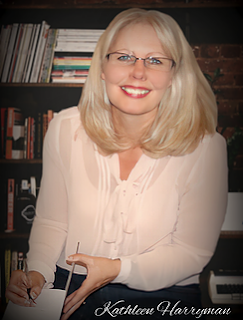
Mary Anne: Hi Kathleen, it is so wonderful that you could join us today. How did the author collaboration for The Promise come about?
Kathleen Harryman: I’ve known Lucy for years, she’s a superb actress and friend. We first worked together on my thriller When Darkness Falls; Lucy played The Yorkshire Slasher in my promotional film.
When she mentioned she had an idea for a book on World War II, I was on board. The Promise would be my first historical novel, and it was important for it be a true and accurate representation of what life was like back then. Not only the feelings of uncertainty which war inevitably brings, but for many it served as a reminder of the devastation that war carries with it. Most people back then would have lived through the first world war. On the brink of a new war, stories of the Great War became more prolific. I wanted to capture this element in The Promise, and so did Lucy.
 Kathleen Harryman and Lucy Marshall.
Kathleen Harryman and Lucy Marshall.
Mary Anne: What were your main influences when writing The Promise?
Kathleen Harryman: I’d always thought about writing a story based on my grandfather, who died in France, as part of the second phase of the D-Day Landings. My dad was only a small boy when his dad died. The stories he’d tell me, and those of my great uncles, filled my mind with such pride and awe. Lucy gave me the shove I needed to write this story, and together we merged Lucy’s idea for a World War II love story with my grandfather’s bravery. We also incorporated the stories of my other family members. In Arthur Shearsmith’s chapter, this really happened. Arthur Shearsmith was my mum’s dad (my grandfather). Having undergone his training ready to fight, his appendix burst as they were about to leave for France. He never made it to France or the frontline. Instead, the military utilised his skills as a sheet metalworker in Hull. These personal stories helped to shape mine and Lucy’s vision for The Promise.
Mary Anne: Tell me about the characters in The Promise?
Kathleen Harryman: When Lucy suggested getting some of her acting friends to come around to my house to talk about the characters I’d outlined for The Promise, I was so excited. As we sat munching on crisps and biscuits, and drinking copious amounts of coffee, discussing The Promise. I got such a buzz that many of the characters are based on the actors sat around my kitchen table that night.
It not only helped to shape the characters, but the story as well. Character relationships were forged that night, and Tom’s character took on a darker theme. There was a definite shift in the story, and it started to come to life.
For a writer to see and talk with your characters, in your head is how a story normally comes together. But to have them right there physically with you, talking and laughing… wow, it blew my mind.
Lucy is a source of inspiration and her enthusiasm is encapsulating. I’d definitely write another book with her. We got on so well, bouncing ideas off each other until the words flowed.
Mary Anne: When co-writing how did you decide who did what?
Co-writing The Promise with Lucy was a dream. Lucy and I have a healthy friendship. We both understand the day-to-day pressures each of us are under. This made our co-author collaboration for The Promise work seamlessly, allowing each other time and space to form ideas and to get it down on paper.
Lucy’s dyslexic, so it made it easier for me to do the writing and research. Personally, I feel that’s why our co-author collaboration worked so well, with just one of us doing the writing. It also allowed for the book to have one distinctive writing style and voice.
I’m lucky because Lucy had already scoped out her plans for the story when we talked about writing The Promise. I just added the meat to the bones, undertaking the writing and research. We went on location together, with Lucy showing me the house which she wanted to use as the convalescence home, which would become The Turnstones.
We also spent a lot of time going over ideas, on how we wanted the story to flow. Lucy’s great because she had some clear and clever ideas. I just made them work in the story. I think our partnership worked because we are friends and we both respect each other. I’ve seen Lucy on stage, and she’s captivating. It was that magnetism that instantly made me sign onto the project.
The key things that worked for me when writing The Promise with Lucy, was the amount of planning and discussion we had at key stages of the book. As character relationships changed and developed, we’d talk about how this impacted on the story and where we wanted to go with it. Because Lucy had some really clear ideas and an incredible outline, I understood what she wanted. We also allowed each other time and room for ideas to grow. Never adding deadlines onto each other.
What might surprise people, (given that both Lucy and I are the creative type), is that we have never argued. We get along really well, and admire and respect each other, we’re open and honest, and I feel that The Promise in part reflects our own relationship.
Mary Anne: Thank you so much for taking the time out of your day to chat with us about your wonderful book!
If you would like to find out more about The Promise, then you know what to do — SCROLL DOWN!!
The Promise
A World War II Historical Romance
By Kathleen Harryman and Lucy Marshall
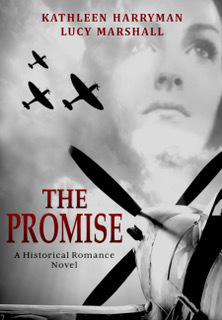
How far would you go to keep a promise?
In the heat of battle, one man's promise to another will be tested.
September 1939
As Britain is gripped by the fear and uncertainty of war, Tom Armitage stands to gain the one thing that he never thought possible - his freedom.
Rosie Elliot sees her future crumbling to dust as Will Aarons leaves Whitby with Jimmy Chappell to fight in the war. As she begins work at The Turnstone Convalescent Home, Rosie finds something she thought she had lost. Friendship. But friendship soon turns to love. Can this new love replace Will?
This is not an ordinary love story.
It's a story of love, loss, courage, and honour.
Of promises that must be kept or risk losing everything you've ever held dear.
Pick up your copy of
The Promise
Kathleen Harryman
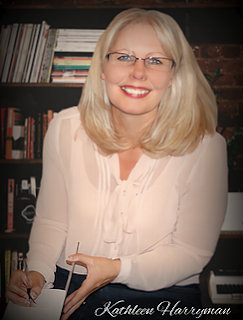
Kathleen Harryman is a storyteller and poet in the historically rich city of York, North Yorkshire, England, with her husband, children and pet dog and cat.
Kathleen was first published in 2015, a romantic suspense entitled The Other Side of the Looking Glass. Since then, Kathleen has developed a unique writing style which readers have enjoyed, and she became a multi-genre author of suspense, psychological thrillers, poetry and historical romance.
Connect with Kathleen: Website • Facebook • Instagram • YouTube • Twitter • IAN
Publication date: 28th February 2019
Genre: Historical Romance
Publisher: Kathleen Harryman and Lucy Marshall
Print Length: 328 pages (paperback) 330 pages (kindle)
Check out Marcus Lee's fabulous book — Kings and Daemons (The gifted and the cursed, Book 1) #Fantasy #Romance @MarcusLeebooks

Kings and Daemons
(The gifted and the cursed, Book 1)
By Marcus Lee

A tale of conquest, dark kings, and daemonic heroes. A spellbinding story that will enchant you with its plot of ambition, love, betrayal, sacrifice and redemption.
Over fifty years have passed since Daleth the seemingly immortal Witch-King and his army conquered the Ember Kingdom.
Now, with the once fertile lands and its enslaved people dying around him, the Witch-King, driven by his insatiable thirst for eternal youth, prepares his forces to march on the prosperous neighbouring Freestates. It will be the beginnings of a conquest that could destroy nations, bringing death and destruction on an unimaginable scale.
Then, when a peasant huntress whose rare gift was concealed from birth is exposed, it sets in motion a chain of events that could alter the destiny of generations to come.
Kings and Daemons is the first book in 'The gifted and the cursed' trilogy.
Excerpt
Taran awoke with a start, feeling strangely refreshed. Light filtered through the trees, and he sat upright. Rakan sat opposite him, smiling.
‘You needed the sleep,’ Rakan said gruffly. ‘You youngsters have no stamina.’
Taran turned his head to see Maya already up, readying a brief breakfast from the last night’s leftovers, and he felt a little disappointed he’d not awoken to find her sleeping next to him. She came over and gave him a large leaf full of meat, fruits and roots.
‘Hey,’ said Rakan. ‘How comes he gets so much this morning?’
Maya scowled down at Taran. ‘I think If he snores like a bear, he should eat like one too.’ But the kind smile in her eyes offset the words. She ruffled Taran’s hair gently as she walked past to give Rakan his breakfast. ‘Don’t worry, there’s plenty for you too. I feel so very safe protected by two of the wildest animals in the forest; a wolf and a bear,’ and she laughed merrily as she sat down to join them.
They ate in silence, although Taran thought, sitting next to Rakan when he ate was hardly silent. How could someone eat so noisily?
‘Right, I’m going to take Taran here as my bodyguard while we get some water,’ announced Maya, and she rose, sweeping up the water skins, leaving Taran to get to his feet quickly to catch up with her.
Taran looked briefly at Rakan.
Rakan smiled back at him. ‘Go on lad. I’ll break camp. You look after the girl.’
Hmmm, thought Taran as he hurried after Maya, ‘bodyguard,’ and liked the sound of the title. As Maya led him swiftly up and down small inclines through the trees, what amazed Taran was Maya’s unerring sense of direction. She moved through woodland, that to Taran looked the same in every direction, with confidence and purpose as though she’d travelled this way a hundred times before. However, as time passed, Taran briefly considered whether she was lost; but any doubts fled when they crested a small rocky rise.
There below them was a spring-fed pool with water trickling down a rock face, to gather in the hollow below. It was a large pool that no doubt had once provided life to many of the woodland animals.
‘Oh my,’ exclaimed Taran, holding his nose. The water was now green with slime as were the rocks, and the smell of wet wood, the foul water, and rotting vegetation was overwhelming. Taran stood a little shocked, then realised Maya must be testing him. ‘We can’t drink this. I’m no woodsman, but this will make us sick if not kill us. We’d be better off just eating berries than taking a sip of this. Now, where is the drinking water that you found, is it nearby?’
Maya laughed, and Taran thought it sounded like sweet music as she turned to him. ‘Taran,’ she said, and leaned in close, taking his arm. ‘Do you trust me?’
Taran paused, thinking for a moment, not wanting to give a glib answer, yet realised with surprise that despite hardly knowing Maya, he did trust her. Without even knowing why at the time, he’d opened up, voicing all the painful secrets locked away inside, and then she’d reciprocated. Something was growing between them, and he wanted it to grow more.
‘Well, do you?’ she prompted, a little frown of impatience at his delay caused a small furrow of grime to appear between her eyes.
Taran nodded, and was relieved to see the furrow, even if not the grime disappear.
‘Well then,’ Maya said, smiling again. ‘Close your eyes and promise not to open them until I say so.’
‘I promise,’ agreed Taran, doing as instructed, and reached out a hand to steady himself against a tree.
He barely heard Maya as she moved away and was tempted to peek. Yet a promise was a promise, and Taran knew in his heart that he never wanted to break one with Maya, so he carefully lowered himself to the ground, eyes closed.
Maya was a consummate hunter, and if it weren’t for her gentle humming and soft singing, he wouldn’t have known she was mere steps away, such was the softness of her tread. Her musical voice lulled him, and the smell of the decay that had seemed sickly sweet now seemed a heady perfume instead, and he found himself drift toward sleep.
‘Are you seriously snoring?’ asked Maya, a hint of annoyance in her voice.
Taran just caught himself from opening his eyes and shook his head. ‘No. Sleeping, me, never. Not while I’m guarding your body!’
Maya’s voice and breath were suddenly close to his ear, and it tickled softly. ‘Well then, as you are not asleep my prince, open your eyes and see.’
Taran opened his eyes, closed them, and opened them again. ‘Truly you are gifted by the gods to have such a power,’ he said, then stood slowly, gazing down at the scene below.
The foul-smelling pool was now pure and clear, no sign of corruption whatsoever. The water trickling down the rocks sparkled like crystal even in the dim light, over vibrant moss which had white flowers sprinkled throughout. All around the banks of the pool, grass now grew, and healthy bushes with verdant leaves flourished everywhere. Even the tree upon which he’d leaned stood firm, and the scent of freshness filled the air to replace the smell of decay.
‘Now, be a good bodyguard and help fill the skins!’ Maya laughed, as she tossed some to him, and they both moved down to the water’s edge.
Taran knelt next to Maya as they held the skins under the surface. As Taran filled the last one, he held up a hand.
Maya looked at him, enquiringly. ‘What’s wrong?’
‘The smell of decay is back.’ Taran cupped some water in his hand and brought it to his face and sniffed. ‘Something smells very wrong.’
A worried look crossed Maya’s face. ‘Really?’ she asked, and bent forward to scoop some water in her hand.
As she did, Taran leaned over, placed his hand between her shoulder blades and pushed her into the pool. She came up spluttering and screeching in indignation.
‘Now,’ said Taran, sniffing the air. ‘That’s a little better. But it’s going to take more than a small dip to get you clean,’ and reaching forward, he put his hand on Maya’s head, and gently pushed down.
‘Don’t you dare!’ she laughed, reaching up to push his hand away, but suddenly she grabbed his arm instead, and pulled him in.
As he came up coughing out water, Maya sniffed the air. ‘Now, that’s a lot better!’ and they both laughed as they splashed one another.
‘Oh my,’ said Maya. ‘It’s been so long since I was clean, and you too by the looks of it. Let’s clean up.’ She reached to the bank and pulled two small plants from the soil and gave one to Taran.
‘What am I supposed to do with this?’ asked Taran, wondering if he should eat it, then started to put it in his mouth.
Maya laughed. ‘Don’t eat it. Now watch.’ With that, she broke the stem and squeezed, so that the pulp oozed into the palm of her hand. She put the rest of the plant on a rock, then rubbed her hands together, producing a sweet-smelling lather that she scrubbed onto her face. She splashed water over herself shortly after, then dropped her hands. ‘See?’
Taran recoiled in horror. ‘What have you done to yourself!’
Maya’s hands swept up to her face, questing. ‘What do you mean?’ she asked, worried.
‘You’ve made a clean spot.’ Taran winked. ‘Now you’re now going to have to work on the rest. Maybe you’ll freshen up quite nicely given a lot of work.’
Maya wrinkled her nose at him, and carried on scrubbing, as Taran started to follow suit.
As they washed, she watched Taran out of the corner of her eye and had to admit to herself that she liked him a lot. She’d never been friends with a boy in her village, or anyone at all for that matter, staying far removed in case anyone discovered her gift. Yet here they were, sharing a cleansing, and she felt something was growing between them.
He wasn’t the best looking man she’d ever laid eyes on, but his humour, his voice, his kindness, and not forgetting the fact he’d been about to die for her, created feelings she’d never previously experienced.
She watched as Taran pulled his shirt over his head. Now there was another reason to like him, those broad shoulders and muscular arms.
Taran started to wash his shirt, and Maya realised that if she just washed herself, she would still smell.
‘Time to guard my body while looking in the other direction,’ she commanded, then ushered him to do an about-face. She took off her top, enjoying the feel of the cool water lapping against her bare flesh, then hesitated a moment before slipping out of her leggings. She turned her back on Taran as he started doing the same.
They washed fast then, and Maya sighed as she realised they needed to hurry. After putting her wet clothes back on with difficulty, she turned around to see Taran already clothed with a silly smile on his face. Maya felt her face burn bright red. ‘How long were you looking?’ she demanded, her eyes flashing.
Taran laughed, ‘For about as long as a piece of twine, maybe short, maybe long. What is it about women that they take so long to wash?’
‘Yooooou!’ hissed Maya, splashing Taran.
Taran reached out with his hands gently taking her shoulders. ‘Do you trust me?’ he asked.
Maya laughed, recognising her own words. ‘Let me think. Do I trust the man who pushed me headfirst into a pool, and who sneaked a look behind my back? I’m not sure!’
She saw the beginnings of hurt in his eyes and decided not to tease him anymore, not just now anyway. ‘Yes, I trust you.’
‘Well then, turn around and close your eyes,’ said Taran. ‘Don’t open them until I tell you to.’
Maya turned around in the water, and Taran’s strong hands encouraged her to lean back against him. She lay her head back on his chest and felt his heart beating powerfully.
Taran’s voice was soft and close to her ear as he said. ‘You seemed to have washed almost everywhere, and I do mean everywhere because I checked, but you forgot to wash your hair.’
With that, she felt his fingers start to massage the fragrant pulp carefully into her scalp. Had her eyes been open at that stage, they would have closed anyway, for the feeling was so soothing that she wanted to purr like a cat.
As Taran washed her hair, he told her a tale from his youth. The sound of his voice, the rhythm of his hands, the fragrance of the plant all relaxed her so much that she slipped into a light sleep. A short time later, Maya opened her eyes to see Taran’s face looking down on her.
‘If I snore like a bear,’ he said, eyes twinkling, ‘then, you snuffle like a piglet.’
‘A piglet!’ Maya exclaimed in indignation. ‘A piglet?’
Taran nodded. ‘I don’t know if you realise this, but I rather like piglets.’
Maya found herself unable to meet Taran’s gaze. ‘I rather like bears too,’ she whispered.
Maya stood up, turning slowly in Taran’s arms. They were so close that their noses almost touched, and she could feel his warm sweet breath on her face.
His hands moved to the back of her neck as he looked into her eyes, and Maya felt her insides flutter as if suddenly filled with a thousand butterflies. She leaned forward on tiptoes, and her lips found his, her eyes closed, as she wished the moment would last forever.
Pick up your copy of
Kings and Daemons
Marcus Lee
Hi there, good to meet you all. I’m Marcus Lee, author of Kings and Daemons, the first in ‘The gifted and the cursed’ trilogy.
This is no doubt where I should have a real picture of me, or tell you how old I am, what my cat's name is etc. Instead, for now, I shall remain mysterious to those who don't know me. For those who do, I'm probably still mysterious.
Writing hasn't always been a serious hobby for me ... but it has always been there, lurking in the shadows, serving me well when called upon.
As I look back over the years, I realise I was guilty of writing many short stories, as well as poetry, and I'd like to think, that even if they were never intended to be published, they were nonetheless warmly received by the intended recipients.
Then in 2019, I was inspired to write not just a short story, or poetry, but a book. Then, suddenly, one book turned into a trilogy and a labour of love, and it was a love I wanted to share with the world.
So, here we are. The pandemic that put my career in sport on hold also gave me the opportunity to lavish time on my alternative hobby, or if demand dictates my new career.
However, only you, the reader, will decide whether this trilogy, which is still a work in progress, will be the first of many. I genuinely hope so.
Who knows, now these creatives juices are flowing, I might just keep on writing anyway.
Epic fantasy has been my favourite genre since I first read The Odyssey and The Illiad as a seven-year-old. Now it's my turn to see if I can bring another world to life in the imagination of others.
Connect with Marcus:
Join me in conversation with #HistoricalFiction author, John Pilkington #Interview @_JohnPilkington @SharpeBooks

A Conversation with
John Pilkington
Please give a warm Coffee Pot welcome to Historical Fiction author, John Pilkington.
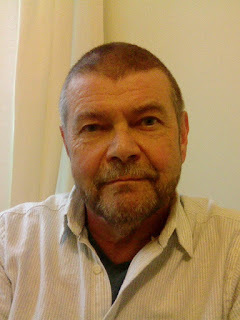
Mary Anne: Hi, John, I am so excited that you dropped by today for a chat. As a skilled writer for radio, stage and television what drew you towards writing historical fiction?
John Pilkington: In fact I wrote my first historical mystery before I wrote for television. Around twenty years ago my playwriting work seemed to be drying up, and I needed a new outlet. While on holiday, sitting by the pool day-dreaming, I got the idea of creating an Elizabethan-era sleuth. This was a period I knew well, having come to it through drama and literature (Shakespeare, Marlowe, Ben Jonson and the rest) before I got interested in the historical and social background. Somehow – I’m not sure how - Thomas the Falconer was born: a sharp-eyed man of the Berkshire Downs, servant to a wealthy knight, who could travel with his master, mix with people of many types and get involved in various mysteries. His first book, The Ruffler’s Child, was written quite quickly in 2-3 months, and through that I found a new agent who then, purely for financial reasons, lined up television work for me. I spent three years working on a BBC daytime soap, but didn’t enjoy it much. Fortunately the scripts could be done within a month, leaving me free to get back to the far more satisfying world of Thomas the Falconer. Though I had no idea then that he would become the hero of 7 books, let alone that I would go on to write 3 more historical series! Nowadays I rarely do any other sort of writing and am happy to spend my working hours in the Tudor and Stuart eras, which never cease to produce new stories.
Mary Anne: Your new book, Legacy: A Justice Belstrang Mystery takes place just 11 years after the infamous Gunpowder Plot. What were the challenges you faced in researching this period of history and were there any unexpected surprises?
John Pilkington: I’ve always been fascinated by the Gunpowder Plot, and became interested in those turbulent years during which the Tudor century gave way to the Stuart, after James 1st succeeded Elizabeth in 1603. It falls between two very well-trodden periods – the Tudor Age and the English Civil War - but is filled with conflict, intrigue and incident. I’m surprised that more writers don’t choose to explore it, because there’s a wealth of material there once you start delving into it.
 London in 1616 by Dutch engraver Claes Jan Visscher.
London in 1616 by Dutch engraver Claes Jan Visscher.
In 2014, I’d just finished a 2-year stint as a Writing Fellow at the University of Bristol, and was free to get involved in some new, in-depth research. I spent around 3 years researching the Jacobean era. As with any period, there are delights and disappointments. For one thing, I found King James an unpleasant man and grew to dislike him intensely. I could well understand why Catholics were so dismayed and angry when (like many a politician) he promised so much before his coronation, then turned his back on them after becoming King. Soon I began to identify with the plotters! I forget who it was who said that the writer should take the part of the underdog, but I often seem to do that instinctively that in my fiction.
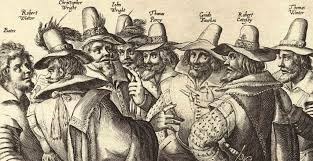 Gunpowder Plotters by Crispijn van de Passe.
Gunpowder Plotters by Crispijn van de Passe.
Surprises – yes, there were some. For example, I couldn’t get the grisly image out of my head of King James standing up to his bare ankles in the blood of a fresh-killed stag, believing it a cure for gout (I used it in Legacy). I was surprised by Guy Fawkes, the ‘warrior-monk’ who could move about freely because he was all but unknown in England, having spent ten years fighting for the Catholic cause on the continent. He was so tough that, after being captured, he withstood two days of torture before he would even reveal his true name. And when he came to be hanged, he was too weak to climb the scaffold unaided, yet threw himself off the top rung of the ladder so that his neck broke, thereby sparing himself the unthinkable agonies of being disembowelled and emasculated alive, like his fellow plotters. But perhaps the biggest revelation of all – though with hindsight, I should have expected it – was how paranoid the country was after the plot of November 1605 was thwarted, and how many Catholics were persecuted, jailed and ruined. Small wonder that the slightest mishap to the King or any of the Royal Family could easily be – and often was - interpreted as another attempted ‘plot’. Fertile ground - and out of this Legacy emerged. For authors, the ‘what if’ factor is often a useful spur. ‘What if someone had decided to…?’ We can speculate as we like.
Mary Anne: The hero of your new book, Robert Belstrang, is a retired magistrate who has turned his hand to investigation when the son of a neighbour goes missing. What do you think makes him such a good protagonist?
John Pilkington: I really wanted to find a different sort of sleuth, following the 4 I’d already created. Thomas the Falconer is a plain-speaking countryman – courageous, upright and loyal. Martin Marbeck, the protagonist of a series of 4 books, is more dangerous: a spy, swordsman and man of action. Boy actor Ben Button followed, the young hero of my Elizabethan Mysteries series for children. After that came my only female protagonist, Restoration-actress-turned sleuth Betsy Brand, who has featured in two mysteries so far, set in the 1670s (After the Fire and The Judas Blade).
Robert Belstrang arrived for a number of reasons (one of them is my growing older!). I thought a more learned man, a lawyer by training, principled but with a rebellious streak, could go places the others couldn’t – even into Whitehall Palace, seat of government as well as a place of intrigue and corruption. He’s a widower and a grandfather with a good deal of life experience as well as a wry sense of humour, and unafraid to admit his faults. He’s immune to bribes, as he is (usually) to the temptations of the flesh. He may not wield a sword like Marbeck, handle himself in a fist-fight like Thomas, or have the acting skills and female perceptions of Betsy Brand, yet he’s brave, believes firmly in justice and will pursue a trail to its bitter end. I can’t help thinking he has a touch of Inspector Morse, with his eye for detail and his grouchiness, as well as of Samuel Pepys, who generally lived life to the full. I began to write Robert’s narrative in the first person, a new venture for me, and at once felt comfortable with him.
Mary Anne: What do you think is the most challenging aspect of writing Historical Fiction?
John Pilkington: I think it’s getting the balance right, between creating a believable historical setting and telling a strong story that makes the reader want to stay with it.
There are pitfalls, like allowing your characters to express 21st-century views - or trying to reproduce period dialogue, which is difficult and sometimes downright impossible. Then, readers can soon tell if you’re trying too hard to sound ‘authentic’, for example by putting in unnecessary historical detail to prove you’ve done your research (I’ve fallen into that trap myself!). They can also grow bored if the characters are too much ‘of their time’ and difficult to identify with – for example the deep, unquestioning religious beliefs of the 16th and 17th centuries, which can lead people to behave in ways we find hard to understand. But they do appreciate a strong sense of ‘being there’.
My usual method is to choose a particular time in which to set my story, then research the events of that year, or years, so that I won’t make any glaring mistakes – like including a real-life character who had in fact died previously, which almost happened once. I build my fictional mystery against this background, even interweaving events if possible, so that the story could – just feasibly – have happened then and there. Legacy is rooted in the events, attitudes and ambience of 1615-1616, and I had to be careful with my timing - for example, finding out when the King was away hunting, as he often was, rather than at Whitehall, which involved digging into various records. I think taking such pains pays off, in the end.
Mary Anne: What advice do you have for aspiring Historical Fiction authors?
John Pilkington: Firstly, I think you need to be passionate about your period. You will need to do plenty of background reading and research of course, and if you aren’t intrigued by what turns up you will get bored with it, which is fatal. What is it about a particular era which most attracts you? Maybe you were enthralled by films like Gladiator, Braveheart or Elizabeth, or drawn to Citizen Kane or even Brighton Rock – the 20th century is now a perfectly acceptable setting for Historical Fiction. Maybe you devoured books as a child set in the Middle Ages, the Civil War or the American Frontier. It doesn’t matter too much because, whatever period you choose, someone has already set a book in it (or twelve). Never let that put you off, but remember that certain periods of history have been plundered extensively by authors, from Ancient Egypt and Rome through the Middle Ages, Tudors and Stuarts, the Napoleonic era to both World Wars. Try to find a new angle if you can, and a protagonist unlike those who come easily to mind. Who, for example, would have thought that a herbalist monk based at an abbey in Shrewsbury in the 12th century would turn out to be such a successful sleuth, in print and on screen? But Ellis Peters’ Brother Cadfael remains popular today, almost 45 years after he first appeared.
I would suggest that, to begin with at least, you let your research lead you. Nowadays you can do a great deal of it online, though you will probably want to build up a library of good reference works on the period, rather than just a stack of Wikipedia print-outs. I’m also a great believer in ‘hands-on’ research when it’s possible. I don’t just mean visiting museums, castles, historic houses or battlefields, stimulating though these may be. I mean ‘getting your hands dirty’, as one of the best writers I knew used to put it: handling period artefacts if you can, inspecting everything from food to weapons, trying on clothes, talking to specialists and so on. I did some fencing at school, which has proved useful when writing sword-fighting scenes. For the Thomas the Falconer books I went on a falconry course, flew some of those remarkable birds myself and learned a huge amount from the falconers I met. Having done some acting as a student, and seen a few Restoration-era plays in the theatre, helped me enter Betsy Brand’s world. In short, anything that brings you closer to the period in which your characters live is useful.
I have a cork wall in my study on which I pin portraits, photographs, maps, quotations, snippets of dialogue – anything that helps with the work-on-progress. One you’ve settled on your central figure – hero, sleuth, or however you like to think of him or her – you can build up a profile before putting ‘X’ on the page. Is there a family? What does X do for a living? What does he/she care about most, and who are they likely to come up against?
Of course, I speak as an author of historical mysteries, and it could be that your protagonist isn’t an investigator or crime-solving figure at all. Some authors choose a real personage (soldier, politician, criminal, courtesan, nurse - there are no limits) and make them the centre of their novel. Who would argue with the success of Hilary Mantel’s portrayal of Thomas Cromwell, hitherto an unpopular and somewhat shadowy figure of the Tudor Court, and now the engrossing subject of a world-famous, prize-winning trilogy?
As I’ve said, it’s really down to what excites and intrigues you. You should do your research, build up your story/plot and then try out a few openings to see what works best, if it helps. Good luck!
Mary Anne: Thank you so much, John, for taking the time to chat with us today.
If you would like to find out more about John and his books then you know what to do SCROLL DOWN!
Legacy
A Justice Belstrang Mystery
By John Pilkington

1616
Robert Belstrang, ex-magistrate bored with country life, comes to London to investigate the strange disappearance of Thomas Jessop, son of a poor Catholic neighbour. He locates the youth in Bedlam asylum, silent and starving himself. When he tries to free Jessop, he is warned off the case by a politic lawyer, Anstis. Soon after, Belstrang finds himself drugged, robbed and falsely imprisoned.
Once released Belstrang persists in his investigation, but he is thwarted at every turn: unseen forces are at work who seemingly want Thomas Jessop to die. When Belstrang confronts Anstis, even he turns up dead.
The trail grows murkier by the hour, drawing Belstrang into the fear-ridden Catholic underworld - until he uncovers a plan with its roots in the Gunpowder Plot of more than a decade ago. Young Thomas, an embittered papist, was being used in a desperate scheme to mark the anniversary of the Plot. The scheme failed – and now the conspirators seem eager to cover up the whole business.
But Belstrang’s a stubborn man. With the help of ex-soldier Daniel Oldrigg, he sticks doggedly to his purpose - and stumbles on the real causes of the Anniversary Plot, which stem from the very heart of a corrupt government.
Belstrang must uncover the truth, or die trying.
Pick up your copy of
Legacy: A Justice Belstrang Mystery
Add Legacy: A Justice Belstrang Mystery to your ‘to-read’ list on

John Pilkington
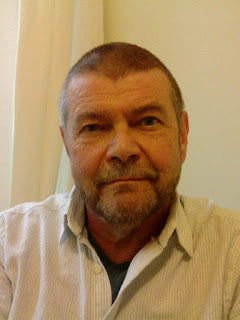
Having given up trying to become a rock star after playing guitar in various bands, John Pilkington turned to writing and found his true vocation. His first works were radio plays, followed by stage plays and scripts for BBC television. But his venture into historical fiction proved crucial, and it continues to be his lifelong passion. He has published around twenty books including seven in the Elizabethan-set Thomas the Falconer Mysteries series (now republished by Sharpe Books), four in the Marbeck spy series (Severn House), and two in a Restoration-era series featuring actress-turned-sleuth Betsy Brand (Joffe Books). His latest novel is Legacy (Sharpe), set in the aftermath of the Gunpowder Plot.
Born in the north-west of England, he now lives in a quiet estuary village in Devon with his partner, and has a son who is a musician, composer and trainee psychologist. When not at his desk he may be found walking by the river, doing a little carpentry or listening to music - and reading, of course. Having moved his fiction into the 17th century, he quite likes it and may well remain there.
Connect with John:
Website • Twitter • Goodreads.
Check out Ron L. Lahr's fabulous #NewRelease — The Children of Kathaldi: The Kathaldi Chronicles Book 1 #Fantasy #GreatReads @LahrRon
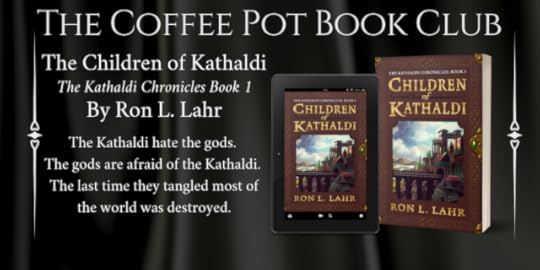
The Children of Kathaldi
The Kathaldi Chronicles Book 1
By Ron L. Lahr

The Kathaldi Chronicles are an epic tale of a long forgotten evil that has returned to conquer the world.
The Kathaldi hate the gods. The gods are afraid of the Kathaldi. The last time they tangled most of the world was destroyed.
The only hope is a small group of friends. Join Dirk as he tells their story. Who is Dirk?
He's a thief. And a scoundrel. Now he needs to help his boyhood friend save the world.
Some wonder why Dirk would help. Look, he’s a jerk, not a monster.
And if the world is destroyed who would Dirk steal from?
Does that make him a hero? Hopefully, the ladies will think so.
There is adventure, heroes aplenty, magic, monsters, evil deeds, and lots of laughs as Dirk tells how he saved the world while his friends were nearby.
Excerpt
Chapter 1 – The Beginning
Look, I’m not writing this to feed my ego. Or to get free drinks, or have ladies throw themselves at me. I’m sure that will all happen, but it’s not why I am doing this. This is for my children. I want them to know me and what I accomplished. What I was a part of. A big, significant, important, part of.
Unfortunately, I don’t know exactly who my children are but, mathematically, I figure I must have a bunch of them. This way, I don’t have to track them down individually and talk to them face to face. It’s a big time-saver for me. Great idea, right? As you read this you’ll see that I’m kind of an ideas guy.
So, to start off you should know that before the important events in this book took place I had some trouble with the authorities from time to time. I would not exactly say I was a thief, but that’s because thievery has a pretty bad reputation. A lot of other people did describe me that way, and I admit that it was accurate.
But, before I get too far ahead of myself I suppose I should step back a little, just to the beginning. My beginning. I was born. I was named Dirk because my father had to sell his favorite one to pay the midwife when I was born, and he wanted me to remember it. He liked reminding me of what they had to give up for me just to pop out of my mother. They were pleasant like that. "It was a difficult birth," my mother would often say. "And it ain't gotten any easier since!" They would both say that last part together, if they could. It never got old. Seriously. Never. Still funny. It's hard to say who I got my own awesome sense of humor from because they were both so darned hilarious.
At some point my dad left so my mom had to finish raising me and my siblings on her own. It didn’t bother me. And if it did, I am completely over it. It’s not a big deal. The important, relevant, part is that I had a friend. And not just that I had a friend, but who he was.
Thilos. He was an orphan who was being raised by a crippled friend of the family who actually turned out to be a good guy. One of the best. See, not all cripples are awful. Anyway, not your normal, unhappy, sad, orphan story. It’s kind of sweet, really.
Anyway, we met as kids, running around the streets, playing, having fun, and maybe causing a little bit of trouble. He taught me to fight and also how to read. Neither very well, mind you, we both needed other, better, teachers later on. But I might never have learned how to read if my new friend hadn't convinced me how cool it would be. I'm not sure he was right about that, it's never gotten me any women, but I’ll admit that it has been extremely helpful.
The really important and relevant part is that we were still friends when the events in this book began, which is why he looked me up that day when he was in big trouble. By the way, this is not supposed to be some fancy foreshadowing – like we are enemies now, or something - it is just me trying to manage what to say and when to say it in terms of the present and the future. It’s kind of tricky. I don’t want to give things away too soon, or too late, or too never. I’m just a guy, trying to tell an amazing story, while some people judge me for every single fricking thing I do.
Ron L. Lahr

Born in the San Francisco Bay area but raised in Spokane, Washington, Ron L. Lahr is the author of the new epic fantasy series the Kathaldi Chronicles. He has worked mainly in the IT and ERP software consulting fields and enjoys gardening, cooking and baking from scratch with his amazing wife, working on old cars and spending time with his family, which mainly consists of his wife, children, parents and in-laws, plus of course, all of their pets. He is also a fan of the Gonzaga men's and women's basketball teams and the Seattle Mariners.
Connect with Ron: Facebook • Twitter.
July 29, 2020
Check out Catherine Stine's fabulous book — Witch of the Wild Beasts

Witch of the Wild BeastsBy Catherine Stine
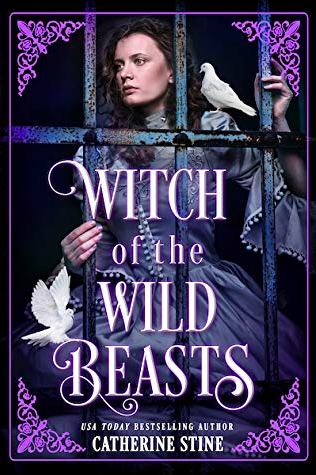
When Evalina is imprisoned for witchcraft, will her supernatural bond with animals be her curse or salvation?
In 1854, Evalina Stowe witnesses the murder of her brother by Dr. Dowdrick, an enraged client at the tailor’s where they work. Desperate to stop him, she rouses a swarm of wasps that sting the doctor while she stabs him with scissors, and then flees. At a subsequent job when birds race to her defence, Evalina is declared a witch and sent to Philadelphia’s Eastern State Penitentiary.
While imprisoned, Evalina is horrified not only to learn that Dr. Dowdrick is still alive, but he’s experimenting on inmates. Determined to get inside his Eclectic Medical School, to expose his nefarious activities, she’s passionate about protecting fellow prisoners, especially Lewin, a child thief who knew her brother, and Birdy, a kind, resilient Welsh man serving time for a worker’s death while blasting granite for the railroad.
Evalina, her friends and her “wild beasts” work against time to unmask Dowdrick’s crimes when she participates with him in a symposium, showcasing Philadelphia’s premium doctors. If they fail, not only will the doctor’s evil deeds continue unchecked but Evalina and her crew will surely be hung.
The Coffee Pot Book Club
★★★★★
Highly Recommended
Read the full review HERE!
Pick up your copy ofWitch of the Wild BeastsAmazon UK • Amazon US
Catherine Stine
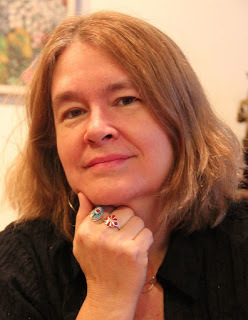 Catherine Stine is a USA Today bestselling author of historical fantasy, sci-fi thrillers, paranormal romance and YA fiction. Her novels have earned Indie Notable awards and New York Public Library Best Books for Teens. Catherine's newest historical fantasy, Witch of the Wild Beasts, was a second prize winner in Valley Forge's 2019 RWA Sheila Contest.
Catherine Stine is a USA Today bestselling author of historical fantasy, sci-fi thrillers, paranormal romance and YA fiction. Her novels have earned Indie Notable awards and New York Public Library Best Books for Teens. Catherine's newest historical fantasy, Witch of the Wild Beasts, was a second prize winner in Valley Forge's 2019 RWA Sheila Contest.She loves spending time with her beagle, writing about supernatural creatures, gardening on her deck, and meeting readers at book events. Catherine suspects her love of dark fantasy came from her father reading Edgar Allen Poe to her when she was a child.
Connect with Catherine: Website • Twitter • Instagram • Pinterest • BookBub • Goodreads.
Join me in Conversation with #HistoricalFiction author, Ellen Alpsten #AuthorInterview #History #Russia @EAlpsten_Author

Please give a warm Coffee Pot welcome to Historical Fiction author, Ellen Alpsten.
Mary Anne: I am so excited that you could join us today for a little chat! Your debut novel, Tsarina, has been described as “A vivid page-turner…” How were you drawn to writing Marta’s story? How did you ‘discover’ her?
Ellen: Marta’s rise from the illiterate, illegitimate serf to first ever reigning Empress of Russia, which morphed from backward country to superpower – fascinated me ever since I discovered her character while reading a book called ‘Germans and Russians’, when aged 13. Author Leo Sievers charted the shared millennial history of those two people. When I had matured enough to be an author, I was stunned to see that nothing more could be read about her: no thesis, no biography, no novel. At times I believe I was destined to find her, a bit like Howard Carter ‘discovered’ Tut Ankh Amun!
Mary Anne: Why do you think she has been overlooked by history in favour of her name-sake Catherine the Great?
Ellen: Most people assume that ‘Tsarina’ is about Catherine the Great, who arrived in Russia as a German Princess, the bride-to-be for the heir to the throne. Not to belittle her achievements, but she -’my’ Catherine’s grand-niece - became the Empress her education had prepared her for and had 34 years of rule to make her mark. The two decades following the death of Peter the Great in Russia form an extraordinarily complicated tableau of opposing forces threatening to tear the country apart. His death left his realm stuck mid-reform, settling into a fragile peace, fearing the lingering threat of attack by either of its neighbours, its government at the mercy of foreign fortune-hunters. If Catherine’s reign was brief – two peaceful and prosperous years, an exception in the Russian history – she continued his strive for discovery and improvement. Her final act was to finance Bering’s ships, allowing the explorer the quest for his eponymous strait.
Mary Anne: How did you immerse yourself in 19th-century Russia? How and where did you start your research?
Ellen: I had of course read ‘The Russians”, such as Tolstoy, Gogol, and Pushkin, as well as Russian fairy-tales, which offer invaluable insight into a country’s imaginary: the storyteller invariably gets rewarded by eating honey! The research proper for ‘Tsarina’ was more focused on the early Romanovs, such as watching Sukorov’s take on the Dogma movie, ‘Russian Ark’, or reading the often hilarious and shocking travel diaries of the 17th century German merchant Adam Olearius, visiting Russia and the first Romanov Tsar. My ‘bible’, however, was Prof. Lindsey Hughes’ tome 'Russia in the time of Peter the Great'. Regrettably, I was never able to meet her. Following a year of research, I dared drafting the novel’s opening sentence. Also, I had a very stringent writing-routine, as I worked as a presenter on Financial breakfast TV, often leaving the house at 2.30 a.m. I wrote every afternoon, after a nap and a run in Hyde Park, half a dozen books surrounding my pc, their pages marked with post-its and highlighter.
Mary Anne: Marta’s story is a real rags-to-riches Cinderella tale – what sense did you get of her character?
Ellen: Initially, I fell for her life’s catchphrase: from serf to Empress, from backward nation to superpower. Yet there is so much more to it: A rising Empire in the turmoil of change. The madness of war. The reckless brutality of an absolute monarchy in which nothing is as abundant and as dispensable as human life. My fascination grew proportionally to my research. How impressive are her psychological make-up and her physical strength? She never surrendered; but enhanced her strengths while going with the flow and worked on her weaknesses. Her mind was never academically schooled; instead, she acted with courage and cunning. The Russians are a communal people - the word for happiness ‘shast’ye’ means being part of something bigger – and she counted on family and friendship. Yet if many women wanted what she had, woe the one who attempted to take what was hers!
Mary Anne: How did her meteoric rise change her do you think?
Ellen: Catherine’s life may seem like a milestone in female empowerment, and whilst she matured, change might be too big a word. Her world of ever shifting circumstances bore too many threats for her not to have been hard headed and steadfast from the beginning on. For all its apparent splendour, her life was as incalculable as any Russian’s. Nowhere the wheel of fortune spins faster, and with more fanciful ferocity. From the moment she relied on her own wits for survival, she pushed herself relentlessly: constantly pregnant, yet accompanying Peter the Great into the fields of the Great Northern War, and on his travels in Russia, Europe, and Central Asia. She displayed courage and prudence, next to maintaining a forgiving nature: those traits never changed. A contemporary wrote: ‘She wasn’t beautiful, but as warm as an animal,’ describing her innate indomitable spirit, as much as about her smouldering sex-appeal.
Mary Anne: What was the most surprising thing you learned from your research?
Ellen: Researching and writing ‘Tsarina’ made me contemplate the female condition. People speak of the 'good old days', longing for more social cohesion and the comfort of limited horizons, yet for normal women those were frankly terrible days. No education, early marriage, annual childbirth - which was a gamble of life and death -, no privacy, no horizons. Life was marginally better for high-born women. The Petrine laws of inheritance changed this - as often, war was a harbinger of progress. If all men are in battle, women have to run the trade. If sons stay in the field, unmarried daughters ought to inherit. So, while equality brings its own challenges, I do prefer to live today. The choices we have are a tremendous luxury and a true achievement.
Mary Anne: What one thing would you like readers to take away from your book?
Ellen: The French Sociologist Pierre Bourdieu coined the immortal phrase: ‘Plus ça change, plus ça reste pareil. That is the case for Russia, too: What surprises us today was already present in the nation’s social make-up back then. Winston Churchill said: ‘Russia is once more a riddle, wrapped in a mystery, inside an enigma’. Putin is a quasi-absolute ruler – a Tsar - of Russia. If ‘Tsarina’, who observes her adopted home-country with the keen eyes of a foreigner, helps a reader t understand the Russian soul further and inspires him to learn more about this mighty country, I am delighted. I perceive the novel as a piece of literary diplomacy! Catherine overcomes a fate raging against her. Her ascent bears testimony of the strength of human nature and the will to survive. When looking at her portraits today, people might struggle to see her appeal – that, too, is a very modern message. You can succeed without adhering to any norms, let alone beauty ideals.
Mary Anne: Why did you choose to write Marta’s story in the form of a novel rather than as a work of non-fiction?
Ellen: The sheer scope of it required the sprawling canvas and the huge cast that only a novel can offer. Her life was marked by opposites as surprising as the Russian Soul: callous cruelty and overwhelming empathy; overt hostility towards all things foreign, yet selfless hospitality to strangers; freezing, interminable winters - zima –, and the summers’ balmy white nights. There are tantalising blanks in her life, which I filled with my imagination.
Mary Anne: Thank you so much for stopping by and chatting with me and The Coffee Pot Readers!
If you would like to find out more about Ellen’s fabulous book, Tsarina, then you know what to do — SCROLL DOWN!
Tsarina
By Ellen Alpsten

Spring 1699
Illegitimate, destitute and strikingly beautiful, Marta has survived the brutal Russian winter in her remote Baltic village. Sold by her family into household labour at the age of fifteen, Marta survives by committing a crime that will force her to go on the run. A world away, Russia's young ruler, Tsar Peter I, passionate and iron-willed, has a vision for transforming the traditionalist Tsardom of Russia into a modern, Western empire. Countless lives will be lost in the process. Falling prey to the Great Northern War, Marta cheats death at every turn, finding work as a washerwoman at a battle camp. One night at a celebration, she encounters Peter the Great. Relying on her wits and her formidable courage, and fuelled by ambition, desire and the sheer will to live, Marta will become Catherine I of Russia. But her rise to the top is ridden with peril; how long will she survive the machinations of Peter's court, and more importantly, Peter himself?
Praise for Tsarina
"Makes Game of Thrones look like a nursery rhyme..."
Daisy Goodwin
"Alpsten's colourful narrative does full justice to her extraordinary career..."
Sunday Times
"A vivid page-turner of a debut..."
The Times
Pick up your copy of
Tsarina
Amazon UK • Amazon US • Bloomsbury • Waterstones • Indie-Bookshops
Ellen Alpsten
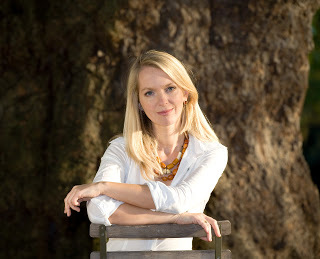
Ellen Alpsten was born and raised in the Kenyan highlands, where she dressed up her many pets and forced them to listen to her stories.
Upon graduating from the 'Institut d'Etudes Politiques de Paris', she worked as a news-anchor for Bloomberg TV London. While working gruesome night shifts on breakfast TV, she started to write in earnest, every day, after work, a nap and a run. So much for burning midnight oil!
Today, Ellen works as an author and as a journalist for international publications such as Vogue, Standpoint, and CN Traveller. She lives in London with her husband, three sons, and a moody fox red Labrador.
'Tsarina' is her debut novel.
For more information about her literary life follow her on social media:
Website • Instagram • Facebook
July 28, 2020
Check out Alice Poon's fabulous book — Tales of Ming Courtesans #womansliterature #HistoricalFiction #GreatReads @alicepoon1

Tales of Ming Courtesans
By Alice Poon

From the author of The Green Phoenix comes a riveting tale of female friendship, honor, and sacrifice for love, set in 17th Century China. Inspired by literary works and folklore, Tales of Ming Courtesans traces the destinies of three of the era’s most renowned courtesans from the seamy world of human trafficking and slavery to the cultured scene of the famously decadent pleasure district of Nanjing, evoking episodes in Memoirs of a Geisha.
Jingjing is reading her mother Rushi's memoir. A wretched adolescence barely behind her, Rushi, being a courtesan, loses her true love to the tyranny of conventions. Social scorn and ill fate keeps stalking her.
The memoir inspires Jingjing to uncover the tragic fates of Rushi's two sworn sisters, also courtesans. Yuanyuan is first trapped in brutal slavery and then forced to let go of her lover and enter an unhappy union with a brutish general who later becomes a traitor. Xiangjun incurs corrupt courtiers' wrath when she warns her lover of their trap laid for him. When the outbreak of war plunges the three women into deeper woes, they mull over a daring idea to preserve hope. In piecing the three sisters' stories together, Jingjing slowly unravels the secret of who she really is.
Pick up your copy of
Tales of Ming Courtesans
Amazon UK • Amazon US • Amazon CA • Barnes and Noble • Earnshaw Books
Alice Poon

Born and raised in Hong Kong, Alice Poon steeped herself in Chinese poetry and history, Jin Yong’s martial arts novels and English Literature in her school days. This early immersion has inspired her creative writing.
Always fascinated with iconic but unsung women in Chinese history and legends, she cherishes a dream of bringing them to the page.
She is the author of The Green Phoenix and the bestselling and award-winning non-fiction title Land and the Ruling Class in Hong Kong. She now lives in Vancouver, Canada and devotes her time to writing historical Chinese fiction.
Connect with Alice:
Website • Instagram • Twitter • Goodreads • Facebook.
Check out John Anthony Miller's fabulous book — Sinner, Saint or Serpent #HistoricalFiction #Mystery @authorjamiller

Sinner, Saint or SerpentBy John Anthony Miller

New Orleans, 1926When a leading businessman is found murdered, investigative reporters Justice Harper, known for his fairness, and Remy Morel, his sassy counterpart, are determined to find the killer. There are three suspects, all prominent women in New Orleans society. The sinner is Blaze Barbeau, a real estate magnate with a checkered past. The saint is Lucinda Boyd, who lost her family business to the victim. And the serpent is a spooky voodoo queen named Belladonna Dede.
The Coffee Pot Book Club
★★★★★
Highly Recommended
Read the full review HERE!

Pick up your copy ofSinner, Saint or Serpent
Amazon UK • Amazon US
John Anthony Miller
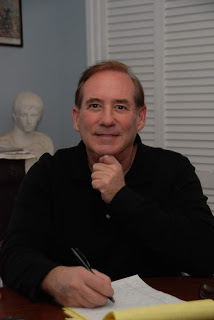 John Anthony Miller was born in Philadelphia, Pennsylvania to a father of English ancestry and a second-generation Italian mother. Motivated by a life-long love of travel and history, he normally sets his novels in exotic locations during eras of global conflict. Characters must cope and combat, overcoming their own weaknesses as well as the external influences spawned by tumultuous times. He’s the author of the historical thrillers, To Parts Unknown, In Satan’s Shadow, When Darkness Comes, All the King's Soldiers, and For Those Who Dare, as well as the historical mystery, Honour the Dead. His latest novel, Sinner, Saint or Serpent, is a jazz age murder mystery set in New Orleans. He lives in southern New Jersey with his family.Connect with John: Website • Facebook • Twitter.
John Anthony Miller was born in Philadelphia, Pennsylvania to a father of English ancestry and a second-generation Italian mother. Motivated by a life-long love of travel and history, he normally sets his novels in exotic locations during eras of global conflict. Characters must cope and combat, overcoming their own weaknesses as well as the external influences spawned by tumultuous times. He’s the author of the historical thrillers, To Parts Unknown, In Satan’s Shadow, When Darkness Comes, All the King's Soldiers, and For Those Who Dare, as well as the historical mystery, Honour the Dead. His latest novel, Sinner, Saint or Serpent, is a jazz age murder mystery set in New Orleans. He lives in southern New Jersey with his family.Connect with John: Website • Facebook • Twitter.
Welcome to Day #3 of the blog tour for The Last King #BlogTour #CoffeePotBookClub #TheLastKing @coloursofunison
The Last King: England: The First Viking Age
(The Ninth Century Book 1)
By M J Porter

They sent three hundred warriors to kill one man. It wasn’t enough.
Mercia lies broken but not beaten, her alliance with Wessex in tatters.
Coelwulf, a fierce and bloody warrior, hears whispers that Mercia has been betrayed from his home in the west. He fears no man, especially not the Vikings sent to hunt him down.
To discover the truth of the rumours he hears, Coelwulf must travel to the heart of Mercia, and what he finds there will determine the fate of Mercia, as well as his own.
Today we are stopping over at The Writing Desk for a fabulous Author Interview.
Click HERE!
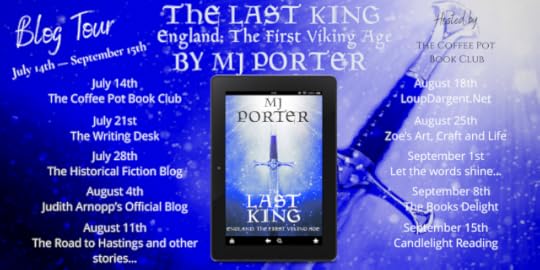
The Coffee Pot Book Club
...more
- Mary Anne Yarde's profile
- 159 followers







